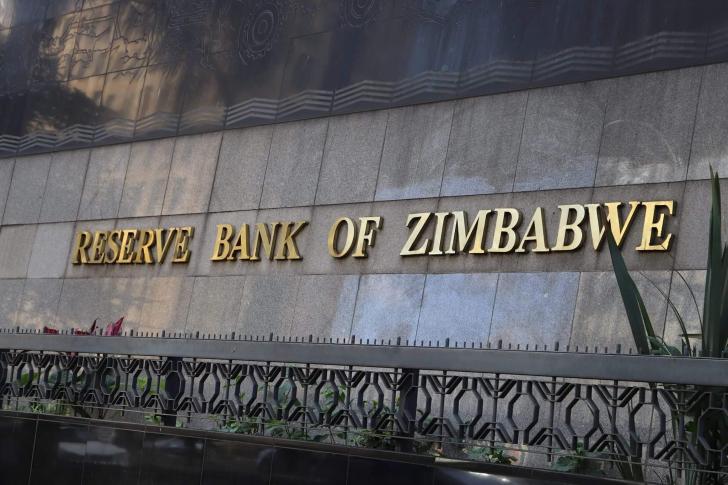News / National
Zimbabwe injects US$64m into foreign currency market
20 Sep 2024 at 06:49hrs |
0 Views

The Reserve Bank of Zimbabwe (RBZ) has injected US$64 million into the foreign exchange market in response to a growing demand for hard currency, ensuring that all bona fide foreign currency applications are met. This comes after a recent surge in demand temporarily strained the market, despite a US$50 million injection in July.
In a statement yesterday, RBZ Governor Dr. John Mushayavanhu confirmed the central bank's intervention. The RBZ had initially injected US$24 million into the interbank foreign exchange market in the first two weeks of September, followed by an additional US$40 million this week, bringing the total to US$64 million for the month.
"The Reserve Bank's intervention is consistent with its policy stance of ensuring that all bona-fide foreign currency applications are honoured and with its role as a participant in the foreign exchange market," said Dr. Mushayavanhu.
The central bank's liquidity support is part of its broader strategy to stabilize the exchange market, using 50% of export surrender receipts to maintain the market's fluidity. Dr. Mushayavanhu also noted a 13.4% increase in foreign currency receipts during the first eight months of 2024 compared to the same period in 2023. This increase is expected to support the timely settlement of importers' foreign payments and bolster economic activity.
The RBZ Governor emphasized that the US$64 million injection would help absorb excess ZiG liquidity and strengthen the stability of the ZiG currency, which was introduced in April as a reserves-backed currency to replace the Zimbabwean dollar.
"Against this background, the Reserve Bank calls upon economic agents to comply with the stipulated foreign exchange framework in the pricing of goods and services," Dr. Mushayavanhu added, reaffirming the RBZ's commitment to maintaining exchange rate stability.
Zimbabwe's foreign exchange market now operates under the willing-buyer willing-seller system, introduced alongside the ZiG in April. The system allows market-driven negotiation of exchange rates, in contrast to the previous foreign currency auction system.
Authorities have dismissed concerns from businesses claiming inadequate access to foreign currency, asserting that sufficient liquidity exists to meet legitimate demands. They also pointed out that some companies may be using foreign currency to build inventory for value preservation or are hesitant to use their own foreign earnings for imports, preferring the interbank market instead.
Since its introduction, the ZiG exchange rate has remained stable, averaging 13.6 ZiG to US$1, with around US$190 million traded on the interbank market between April and August. The RBZ has vowed to continue supporting the smooth settlement of foreign exchange transactions.
In a statement yesterday, RBZ Governor Dr. John Mushayavanhu confirmed the central bank's intervention. The RBZ had initially injected US$24 million into the interbank foreign exchange market in the first two weeks of September, followed by an additional US$40 million this week, bringing the total to US$64 million for the month.
"The Reserve Bank's intervention is consistent with its policy stance of ensuring that all bona-fide foreign currency applications are honoured and with its role as a participant in the foreign exchange market," said Dr. Mushayavanhu.
The central bank's liquidity support is part of its broader strategy to stabilize the exchange market, using 50% of export surrender receipts to maintain the market's fluidity. Dr. Mushayavanhu also noted a 13.4% increase in foreign currency receipts during the first eight months of 2024 compared to the same period in 2023. This increase is expected to support the timely settlement of importers' foreign payments and bolster economic activity.
"Against this background, the Reserve Bank calls upon economic agents to comply with the stipulated foreign exchange framework in the pricing of goods and services," Dr. Mushayavanhu added, reaffirming the RBZ's commitment to maintaining exchange rate stability.
Zimbabwe's foreign exchange market now operates under the willing-buyer willing-seller system, introduced alongside the ZiG in April. The system allows market-driven negotiation of exchange rates, in contrast to the previous foreign currency auction system.
Authorities have dismissed concerns from businesses claiming inadequate access to foreign currency, asserting that sufficient liquidity exists to meet legitimate demands. They also pointed out that some companies may be using foreign currency to build inventory for value preservation or are hesitant to use their own foreign earnings for imports, preferring the interbank market instead.
Since its introduction, the ZiG exchange rate has remained stable, averaging 13.6 ZiG to US$1, with around US$190 million traded on the interbank market between April and August. The RBZ has vowed to continue supporting the smooth settlement of foreign exchange transactions.
Source - The Herald
Join the discussion
Loading comments…
































